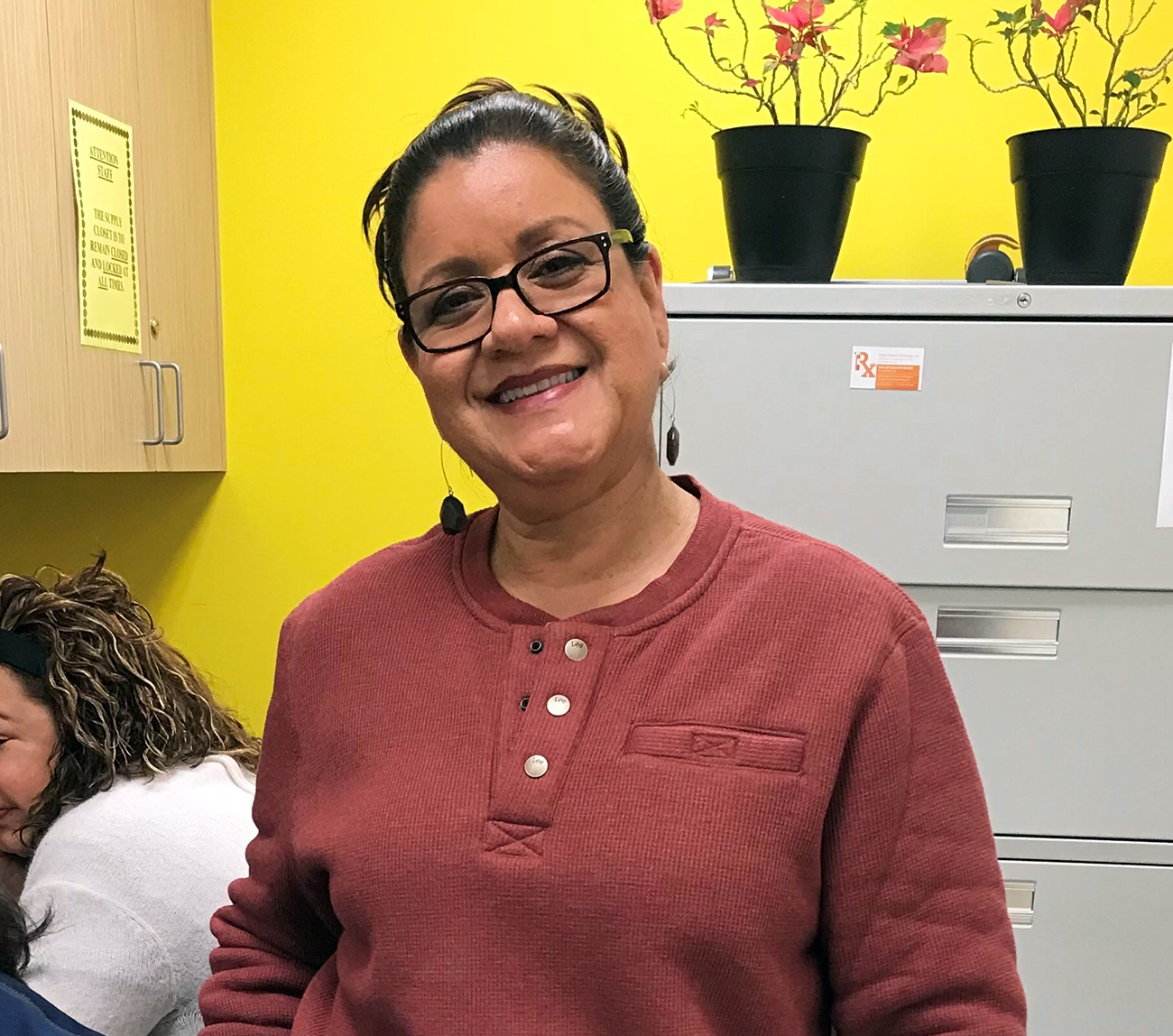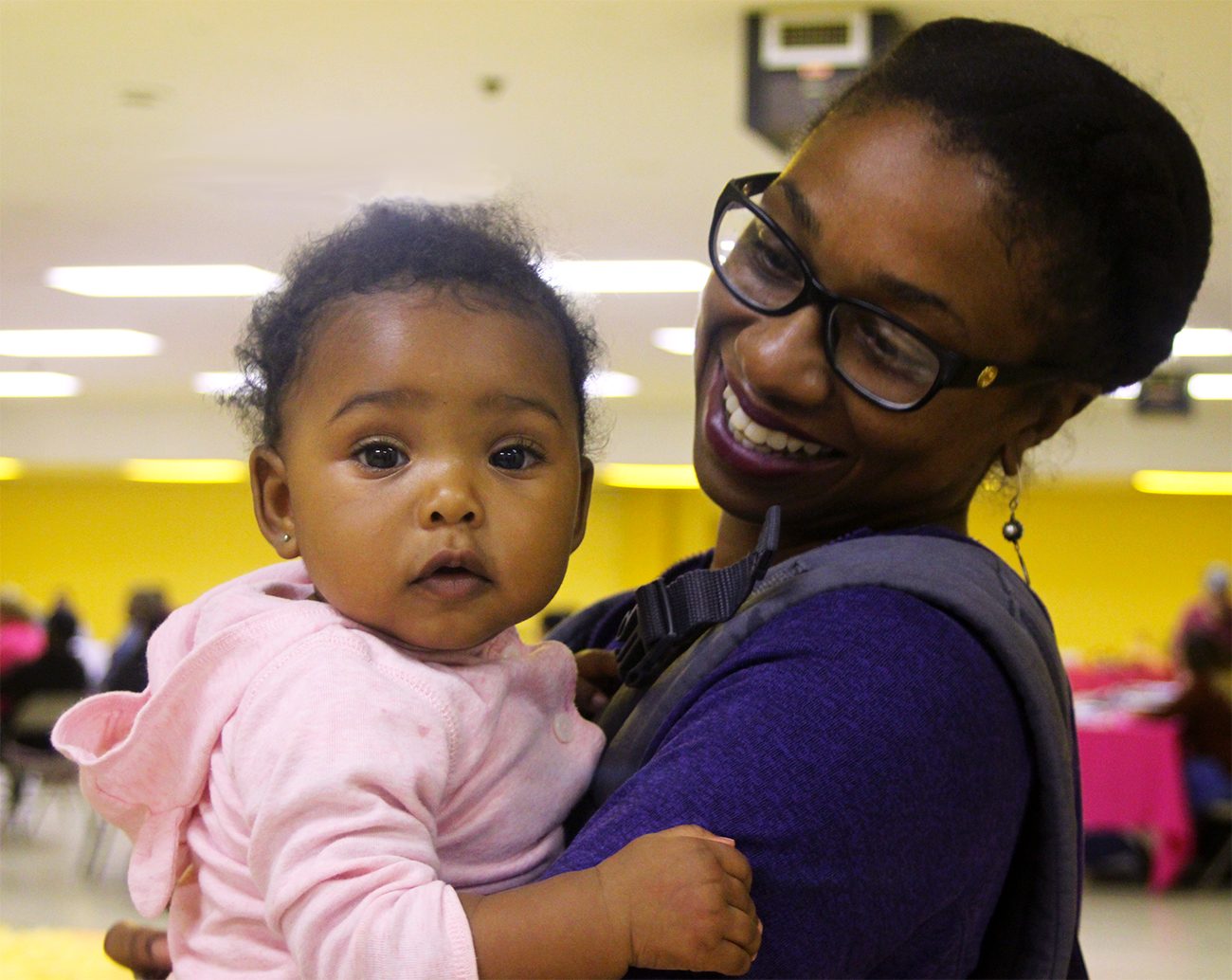For the ninth straight year, an archdiocesan agency has been recognized for its wide range of services to thousands of pregnant women – an outreach that intensified amid the COVID-19 pandemic.
Catholic Social Services (CSS) was recently named as Pennsylvania’s “Service Provider of the Year” by Real Alternatives, a non-profit, charitable organization in the Commonwealth of Pennsylvania that administers pregnancy and parenting support services.
In addition, CSS’s Northeast Philadelphia Family Service Center (NEFSC) received its 11th real Alternatives “Site of the Year” award, acknowledging its work with expectant and new mothers.
[hotblock]
During 2020, CSS assisted 3,976 pregnant women through its Beautiful Beginnings program, distributing diapers, baby food, maternity and baby clothing, car seats, and baby furniture.
“The list is large,” said Camille Crane, administrator of CSS’s Casa del Carmen Family Service Center in North Philadelphia. “As a mom prepares to welcome her newborn, the greatest needs have to do with the purchasing of expensive items.”
CSS also connects women with medical and other essential services, while offering in-depth parenting classes.
The agency’s mission took on new urgency as the pandemic spread, with “isolation, fear of the virus and lack of resources” gripping pregnant women throughout the area, said Amy Stoner, CSS’s director of community-based, housing and homeless services.
“All of that combined really had an impact, and created a lot of stress for clients,” said Stoner, who joined CSS staff in accepting the Real Alternatives awards during a June 8 conference near Harrisburg.
Initially, COVID-related social distancing made it challenging to keep in touch with clients, she said, since CSS staff normally rely on face-to-face interactions at the agency’s five main sites throughout the area.
However, with lockdown orders in place, outreach workers quickly took to Zoom to keep classes going, said Stoner.

Sonia Navarro, a parent educator for archdiocesan Catholic Social Services, said her online parenting classes saw increased enrollment during the COVID pandemic. (Photo courtesy of Sonia Navarro)
“We were really cognizant of the fact that staying connected was very important,” she said.
If anything, the pandemic-related shift to online support resulted in a greater awareness of CSS’s resources, said longtime NEFSC parent educator Sonia Navarro.
“We have been able to reach more people through Zoom, and it’s been a success,” she said. “People are at home (during class); it’s convenient.”
Navarro joked that she and her colleague Allison Kane have dubbed their four-day-a-week online parenting classes – which consistently draw anywhere from 12 to 25 participants per session — the “Sonia and Allison Podcast.”
“We bounce off of each other well,” said Navarro, whose native fluency in Spanish sets Latino clients at ease. “We don’t rehearse, but people type little hearts in the Zoom chat box in response.”
Navarro and her colleagues also follow up with diaper drop-offs to clients’ homes, and make direct phone calls to clients – “even in the hospital, while they are in labor,” she said.
Delivering a baby during the pandemic was especially frightening for many clients, Navarro noted, since COVID precautions generally prevented husbands, partners and other loved ones from being present in the hospital.
[hotblock2]
“People were petrified,” she said. “I had to talk to a lot of my Spanish-speaking clients, many of whom were in tears. I had to help them mentally, and tell them, ‘It’s OK to go to the hospital.’ They were sad their husbands couldn’t be there.”
One client’s fears derived from a desperate race against time: referred to CSS by a priest, a woman sought to reverse the medication-assisted abortion she had begun.
“The reversal process for the mom and the entire family was painful as they awaited the positive outcome (of survival),” said Crane. “During that time, we continued to reach out to the mom, who found comfort in the church and God, and who said she will be in touch as needs arise.”
Poverty and lack of sufficient resources are key drivers for women who seek abortions. According to the Guttmacher Institute, 75% of U.S. abortion patients are from low-income poor households, with 53% of them Black or Hispanic. Some 59% already have at least one child.
Globally, the same organization reports 73.3 million annual abortions, with the majority concentrated in Asian, Arabic, African and Latin American nations.
As COVID restrictions are eased, Stoner and her team are redoubling their efforts to ensure expectant women have what they need to become new moms – including a strong sense of community.
“You can’t walk through pregnancy alone,” she said.
PREVIOUS: New clergy assignments announced
NEXT: Delco group home residents ready for summer, thanks to Catholic school neighbors



Share this story